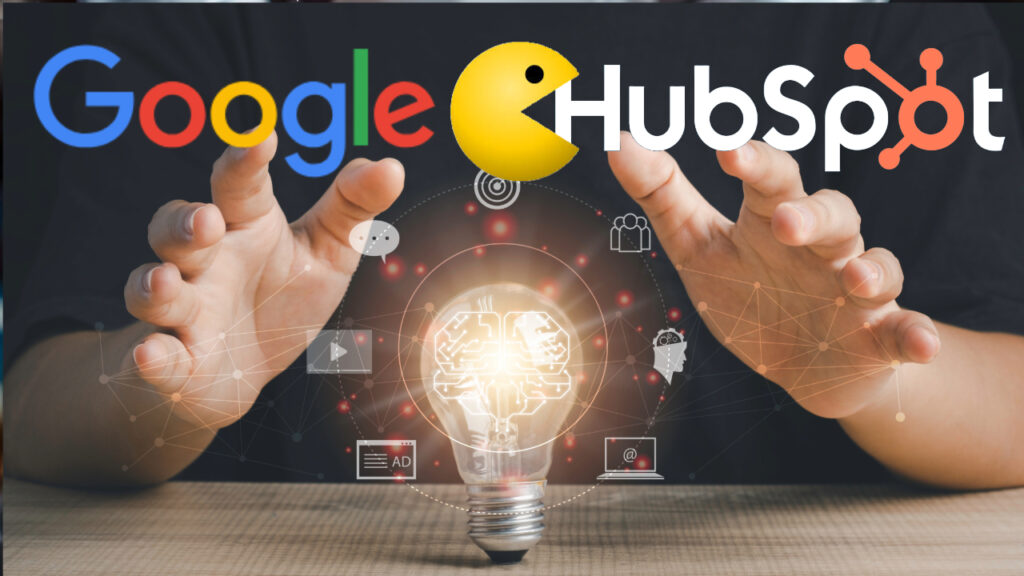
Have you heard the rumor Google is allegedly considering a potential acquisition of Hubspot. If true, it would be a game-changer for the marketing landscape. As someone who’s worked with numerous clients to optimize their marketing strategies, I can attest that integrating Google Ads and Hubspot would make perfect sense.
In my early days as a growth marketing specialist, I recall an enlightening incident where an SMB client once queried me about the apparent scarcity of leads. I knew many leads were being generated and after digging deeper into the sales process, it became evident that while leads were indeed being generated, the absence of a robust tracking system was the real issue. This experience drove me to a requirement for all future clients to integrate CRM solutions into any digital sales workflow, ensuring precise tracking and management of leads.
I have developed a keen eye for evaluating CRM usage among my clients. I scrutinize each system to identify areas for improvement. Is there a sales funnel? How frequently is it updated? Are automated emails effectively nurturing potential leads? What is the open rate? Are they converting? These are critical questions I explore in my client projects.
This brings us to why HubSpot stands out as a premier solution in the industry. Not only does it excel in managing and nurturing leads, but it also offers seamless integration with Google Ads. Connecting your Google Ads account to HubSpot enables automatic UTM tracking, enhancing your ability to track the effectiveness of your advertising efforts through detailed attribution. This feature is pivotal for marketers aiming to understand which assets and channels drive conversions to create the best ROI on digital marketing.
- With Hubspot, Google would be the only advertiser with 360-degree experience, including CRM, marketing automation, and analytics. More specifically, SMBs that lack the resources of larger companies must create a complete infrastructure to maximize every digital opportunity.
- Secondly, the impact of AI on attribution remains uncertain which is already one of the most significant challenges for digital marketers today. Currently, it’s unclear exactly when AI algorithms learn from our website or social media content. Even more crucial is understanding when AI influences a response or recommendation that leads to a purchasing decision. This lack of transparency poses a challenge in accurately determining how AI-driven interactions contribute to conversions.
I view Google AI results referred to as SGE (Search Generative Experience) much like a Zero-Click search when the SERP (Search Engine Results Page) displays the answer in the search results and does not lead to a click to a website for analytics or attribution. Zero-click searches are now estimated at 65% and going higher, which is something to think about. - The impending integration of AI into advertising is bound to transform the landscape in ways we can’t yet fully predict. The advent of Generative AI suggests that our creative limits might only be bound by our imagination. Currently, we are still exploring the initial capabilities of AI, often likened to mere ‘parlor tricks’ where prompting is the primary interaction method. However, it’s only a matter of time before innovative applications emerge, potentially revolutionizing the field. The key question moving forward will be whether these advancements remain proprietary or become accessible to everyone.
- Lastly, venturing into more speculative territory, consider the implications of artificial general intelligence (AGI). Should a merger like that between Google and HubSpot occur, it could either lead to AGI replacing the role of marketers or becoming irrelevant in the decision-making process. Imagine a scenario where different AGIs communicate with each other, strategizing on which products and services to promote to consumers. In such a world, the traditional tools and applications humans have relied on could become obsolete. If Google were to enhance its AI with HubSpot’s capabilities to predict consumer behavior better, it might significantly reduce businesses’ dependence on conventional advertising methods. This could redefine competitiveness in digital advertising.
Remember that Google’s total revenue was $305.63 billion in 2023, of which the majority, $237.86 billion, was earned from ad revenue. Safeguarding their largest source of income means everything.
If you want to discuss this further, feel free to reach out to me. I would love to have a conversation.